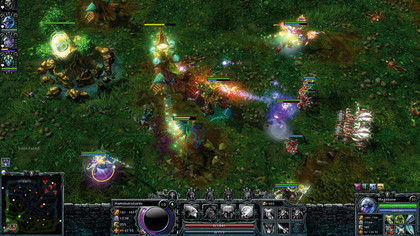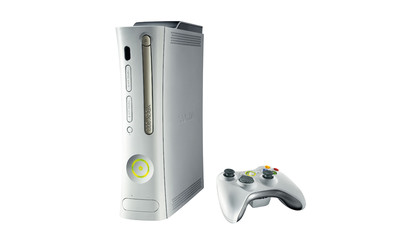Why PC gaming is far from dead
New tech can revive gaming on the humble PC, says Nvidia
Sign up for breaking news, reviews, opinion, top tech deals, and more.
You are now subscribed
Your newsletter sign-up was successful
Again, the flexibility and openness of the PC means the barriers to a rapid transition to free-to-play are few compared to the walled gardens inhabited by console gamers.
Graphical grunt
However, the issue that most people would point to is the growing hardware gap between consoles and PCs. A mid-range GPU like the new GTX 660 is 4.3 times faster than a GeForce 9800 board from 2008, and a 9800 is miles better than any of the current consoles, which are pegged around GeForce 7800 levels. Put simply, consoles now look pathetic compared to even a mediocre mid-range PC.
All the wow factor is with the PC, to the extent developers are increasingly leaning towards the PC as the target platform. Nvidia reckons the PC clearly 'won' the E3 show this year since nearly all the new games being showcased were running on PCs - often secretly. It's the platform you need to use to achieve something special in the graphics department.
New tech
And it's not the only hardware trend that's giving the PC a lift. The recent rise of tablets and smartphones is making consumers much more tech savvy. Wright reckons that gadget owners who've had a great experience with Nvidia Tegra-powered ultramobile devices are more likely to demand good graphics from their PCs - and good Nvidia graphics at that.
Chuck things like Ultra HD (or 4K) screens into the mix, along with the increasing prevalence of CGI cinema blockbusters and you have a buying public who are that little bit more discerning when it comes to graphical fidelity - and some of them will be won over by the PC's obvious technical supremacy.

The next round of new consoles is probably only a year away, but there's reason to believe they won't push the technical boundaries as hard as the existing bunch did seven or so years ago.
If there's a joker in the pack here, it's cloud gaming, where games run entirely on servers that stream compressed video to client machines that needn't be PCs or consoles - they can just as easily be smart TVs. It's hard to predict how fast it will take off - and the recent financial complications at OnLive suggest that this idea may be a bit before its time.
Sign up for breaking news, reviews, opinion, top tech deals, and more.
Even if cloud gaming does take off, it feels like a more natural match for mainstream console gaming than cutting edge PC games, so we'll go out on a limb and predict that the extent to which it does eat into the games market, it will probably be at the expense of consoles rather than PCs.
Next-gen console threat
The way we see it, there's only one threat to the PC's resurgence as the predominant platform for proper gaming, and that's the arrival of some new consoles with unprecedented levels of graphical prowess. But is that a remotely plausible scenario?
It's been seven-odd years since the Xbox 360 launched and a little less since PlayStation 3 appeared, so the consoles are looking pretty horrible right now. But that could change next year with some new boxes, right?

Actually, we doubt it. For starters, the success of the Nintendo Wii, albeit a little fleeting, did a pretty good job of making the console boys doubt the idea that gaming is all about graphics. What's more, both Sony and Microsoft paid dearly due to teething problems and the general expense of bringing high-end computing and graphics kit to market at a price console gamers would tolerate.
In that context, the rumours of modest hardware specs for the next generation seem plausible. Microsoft in particular is said to be targeting rapid profitability for the next Xbox, and that isn't terribly compatible with producing a console to rival PCs for performance.
In fact, you could argue the arrival of next-gen consoles will only be good for PC gaming. They probably won't be powerful enough to remotely threaten the PC's hardware supremacy. But they will give the industry a bit of a lift by raising the lowest common denominator in terms of graphical fidelity. All is well for PC gaming.
There's life left in it yet
Put it all together, and the next five years really do look like a potential golden age for PC gaming. Predictions any further out than that are a fool's errand. Enjoy it while it lasts, folks